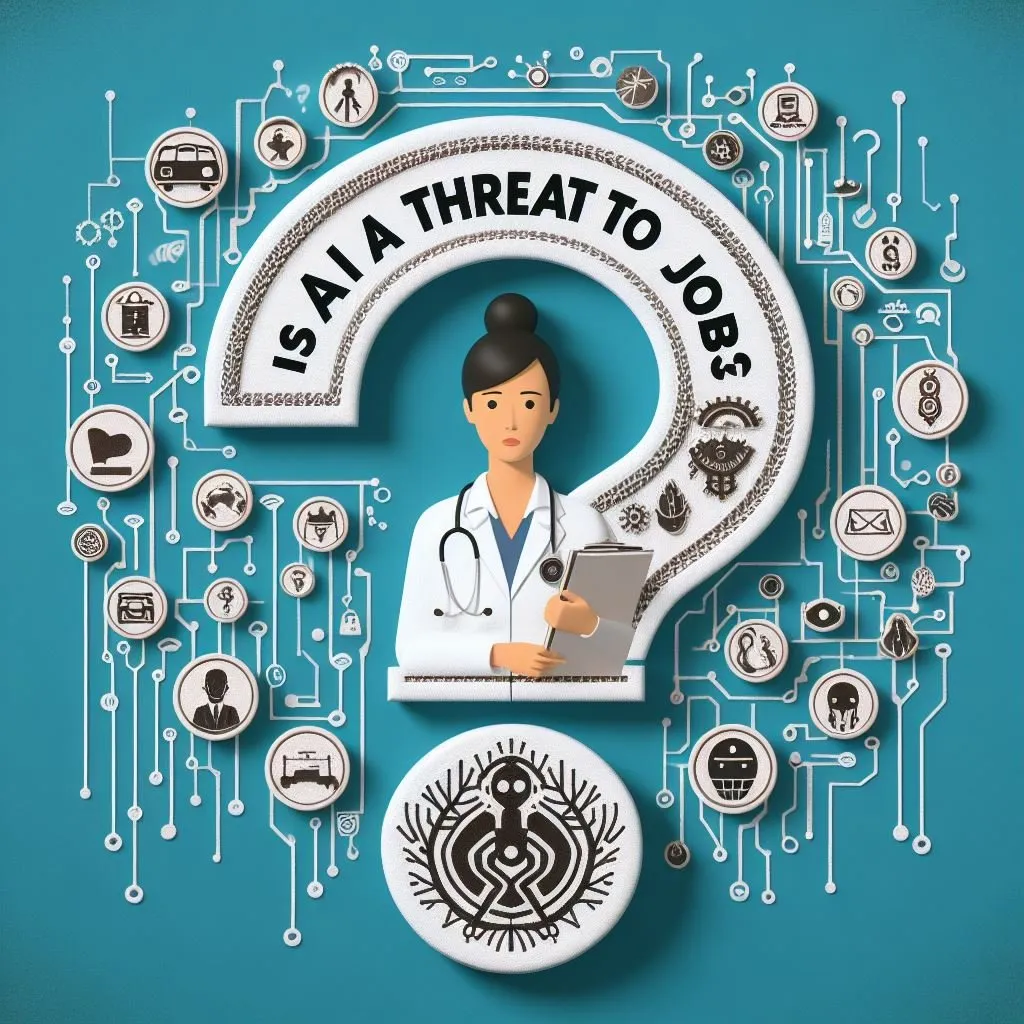Is AI a Threat to Jobs?
Artificial Intelligence (AI) is revolutionising business operations and customer interactions. While some view AI as an efficiency booster, others fear its impact on employment. In this article, we delve into both sides of the argument.

Proponents’ View: AI Creates Opportunities
Proponents argue that AI can spawn new job roles in various domains:
- Data Science: AI-driven data analysis opens avenues for data scientists, statisticians, and analysts.
- Machine Learning Engineering: ML engineers design and optimize AI algorithms.
- Robotics: AI-powered robots require maintenance, programming, and supervision.
For instance, McKinsey & Company predicts that AI could generate 133 million new jobs globally by 2022.
Critics’ Concerns: Job Displacement
Critics contend that AI might displace workers in specific sectors:
- Manufacturing: Automation replaces manual labor, affecting assembly line workers.
- Transportation: Self-driving vehicles could eliminate millions of driving-related jobs.
- Customer Service: Chatbots and automated systems reduce the need for human agents.
Historical Context: AI Isn’t New
It’s essential to recognize that AI isn’t a novel phenomenon. Previous technological shifts, such as automation and robotics, also caused job displacement. However, they simultaneously created fresh opportunities:
- Automation: While manufacturing jobs declined, programming and maintenance roles emerged.
- Robotics: Robotics engineers and technicians found employment.
Conclusion: Balancing AI and Jobs
AI need not inherently threaten jobs. Businesses and policymakers play a crucial role in ensuring equitable distribution of AI benefits. Key steps include:
- Education and Training: Invest in programs to upskill workers for AI-related roles.
- Industry Adaptation: Encourage sectors to evolve alongside AI advancements.
- Ethical Implementation: Prioritize responsible AI deployment to minimize negative impacts.
In summary, AI’s impact on jobs depends on how we navigate this transformative era. By fostering a skilled workforce and embracing AI responsibly, we can create a future where technology and employment coexist harmoniously.
Author

Ching Yu Tan is an AI expert, educator, and consultant who helps businesses and professionals harness the power of artificial intelligence for innovation and growth. He is the creator of the “AI Matrix”, a unique framework that simplifies and streamlines the integration of AI into core functions. He has worked with clients like Microsoft, Schneider Electric, and Sarawak Energy, and has been featured on Malaysia’s top business radio station - BFM 89.9 on the topic of AI. He is on a mission to drive the AI-powered future for businesses and professionals with his insights, methods, and results.
